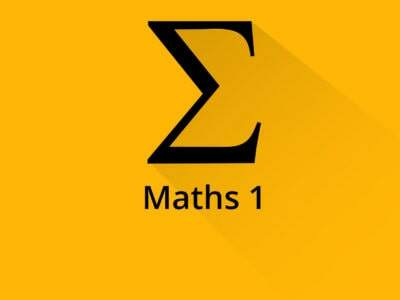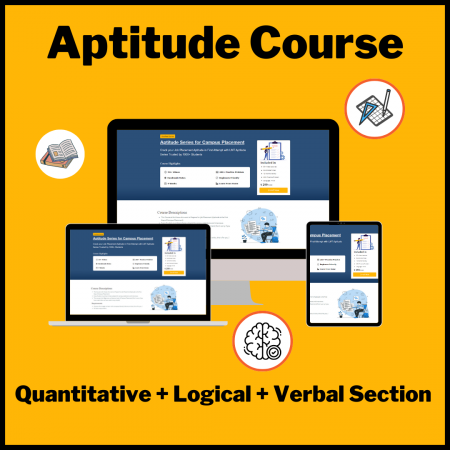Engineering Maths 1

-
Description
This series is completely for beginners if you don’t know the basics its completely fine then also you can easy learn from this series and understand the complex concept of maths 1 in a easy way
Branches Covered ( Comps , Mechanical , Civil , EXTC , Electrical , Electronics , IT )
Handmade Notes : Notes are Brilliant , Easy Language , East to understand ( Student Feedback )
Exam ke Pehle Notes ek baar Dekhlo revision aise hi hojata hai -
Complex Number
-
Numerical solutions
-
Hyperbolic Function
-
Partial Differentiation
-
Successive differentiation
-
Matrices
Want to Clear your Engineering Math’s 1 in first attempt without any problem | Enroll this courses | Video’s for all branches | in Hindi | for Beginners
This series is completely for beginners if you don’t know the basics its completely fine then also you can easy learn from this series and understand the complex concept of maths 4 in a easy way
Branches Covered ( Comps , Mechanical , Civil , EXTC , Electrical , Electronics )
Handmade Notes : Notes are Brilliant , Easy Language , East to understand ( Student Feedback )
Exam ke Pehle Notes ek baar Dekhlo revision aise hi jata haiEngineering Mathematics-I is semester 1 subject of final year of computer engineering in Mumbai University. Prerequisite for studying this subject are basic understanding of mathematics concepts. Objectives of the subject Engineering Mathematics-I is to develop the basic Mathematical skills of engineering students that are imperative for effective understanding of engineering subjects. The topics introduced will serve as basic tools for specialized studies in many fields of engineering and technology. To provide hands on experience using SCILAB software to handle real life problems. Outcomes of the subject Engineering Mathematics-I is that Learners will be able to Illustrate the basic concepts of Complex numbers. Apply the knowledge of complex numbers to solve problems in hyperbolic functions and logarithmic function. Illustrate the basic principles of Partial differentiation. Illustrate the knowledge of Maxima, Minima and Successive differentiation. Apply principles of basic operations of matrices, rank and echelon form of matrices to solve simultaneous equations. Illustrate SCILAB programming techniques to the solution of linear and simultaneous algebraic equations.
Before studying this Module Complex Numbers Pre-requisite: Review of Complex Numbers‐Algebra of Complex Number, Cartesian, polar and exponential form of complex number. Statement of D‘Moivre‘s Theorem. Expansion of sinn θ, cosnθ in terms of sines and cosines of multiples of θ and Expansion of sinnθ, cosnθ in powers of sinθ, cosθ .Powers and Roots of complex number. Module Hyperbolic function and Logarithm of Complex Numbers Consists of the following subtopics Circular functions of complex number and Hyperbolic functions. Inverse Circular and Inverse Hyperbolic functions. Separation of real and imaginary parts of all types of Functions. Logarithmic functions, Separation of real and Imaginary parts of Logarithmic Functions. # Self learning topics: Applications of complex number in Signal processing, Electrical circuits. Partial Differentiation Consists of the following subtopics Partial Differentiation: Function of several variables, Partial derivatives of first and higher order. Differentiation of composite function. Euler‘s Theorem on Homogeneous functions with two independent variables (with proof). Deductions from Euler‘s Theorem. # Self learning topics: Total differentials, implicit functions, Euler‘s Theorem on Homogeneous functions with three independent variables. Module Applications of Partial Differentiation and Successive differentiation. Consists of the following subtopics Maxima and Minima of a function of two independent variables, Lagrange‘s method of undetermined multipliers with one constraint. Successive differentiation: nth derivative of standard functions. Leibnitz‘s Theorem (without proof) and problems # Self learning topics: Jacobian‘s of two and three independent variables (simple problems).
Before studying this module Matrices Pre-requisite Inverse of a matrix, addition, multiplication and transpose of a matrix. Module Matrices Consists of the following subtopics Types of Matrices (symmetric, skew‐ symmetric, Hermitian, Skew Hermitian, Unitary, Orthogonal Matrices and properties of Matrices). Rank of a Matrix using Echelon forms, reduction to normal form and PAQ form. System of homogeneous and non –homogeneous equations, their consistency and solutions. Self learning topics are Application of inverse of a matrix to coding theory. Module Numerical Solutions of Transcendental Equations and System of Linear Equations and Expansion of Function consists of the following subtopics Solution of Transcendental Equations: Solution by Newton Raphson method and Regula Falsi. Solution of system of linear algebraic equations, by Gauss Jacobi Iteration Method, and Gauss Seidal Iteration Method. Taylor‘s Theorem (Statement only) and Taylor‘s series, Maclaurin‘s series (Statement only).Expansion of sin(x), cos(x), tan(x), sinh(x), cosh(x), tanh(x), log(1+x), ( ), ( ), ( ). # Self learning topics: Indeterminate forms, L‐ Hospital Rule, Gauss Elimination Method, Gauss Jordan Method.
Suggested References books for the subject Engineering Mathematics-I by Mumbai university are as follows Higher Engineering Mathematics, Dr. B. S. Grewal, Khanna Publication. Advanced Engineering Mathematics, Erwin Kreyszig, Wiley Eastern Limited, 9th Ed. Engineering Mathematics by Srimanta Pal and Subodh,C. Bhunia, Oxford University Press. Matrices, Shanti Narayan, .S. Chand publication. Applied Numerical Methods with MATLAB for Engineers and Scientists by Steven Chapra, McGraw Hill. Elementary Linear Algebra with Application by Howard Anton and Christ Rorres. 6th edition.John Wiley & Sons, INC.
Prepare For Your Placements: https://lastmomenttuitions.com/courses/placement-preparation/
/ Youtube Channel: https://www.youtube.com/channel/UCGFNZxMqKLsqWERX_N2f08Q
Follow For Latest Updates, Study Tips & More Content!
Course Features
- Lectures 32
- Quizzes 0
- Duration 50 hours
- Skill level All levels
- Language English
- Students 117
- Certificate No
- Assessments Yes



![SEBI GRADE A – IT 2025 SEBI GRADE A 2025 – IT [ Phase 1 + Phase 2 ]](https://lastmomenttuitions.com/wp-content/uploads/2025/12/SEBI-GRADE-A-IT-2025-450x450.png)
